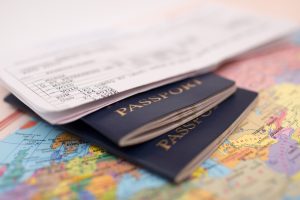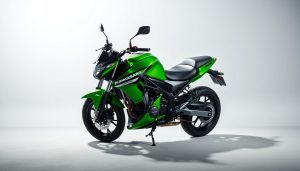Curious why many Dutch shoppers still rely on debit wallets, yet travelers insist on a backup for bookings and purchases?
The Netherlands favors debit use in stores, but a credit option can be vital for hotels, car rentals and online protections. This guide outlines the key facts readers need before they apply. It covers who benefits most, acceptance by Visa and Mastercard, and how American Express compares.
Applicants should expect a BKR check and processing that often takes five to ten working days. Many people set up direct debit and pay their balance in full every month to avoid interest. Forex fees for non-euro payments usually sit around 2%.
Readers will get a clear view of limits, eligibility and ongoing costs so they can compare available options in the Netherlands and choose the best mix of protection, acceptance and price.
Credit cards in the Netherlands today: what to expect and when they’re useful
Everyday Dutch shoppers mostly use debit for in-store buys, but many keep a backup credit card for travel and online purchases. That backup helps with hotel deposits, car rental security holds and airline bookings where extra protection matters.
Visa and Mastercard networks are the most widely accepted options in shops and online. American Express often appears at larger, international-facing merchants only. Some smaller stores still do not accept every brand, so carrying a widely accepted option is sensible.
When people apply credit card products they should expect a BKR check and possible net income thresholds per month. Forex fees on non-euro transactions typically run near 2%, so factor that into costs.
Common features across credit cards available include purchase protection windows, app controls and contactless payments. A local bank account simplifies direct debit repayments and monthly management.
Rabobank credit card application details: eligibility, fees, limits, and acceptance
Before signing up, it’s useful to compare limits, protections and monthly costs for the available options. The bank issues Rabo-branded Visa and Mastercard products to customers with a banking package.
Eligibility requires a minimum net monthly income of €1,000 and a standard BKR check. Cards are linked to the customer’s bank account and balances are usually collected by direct debit every month.
Pricing varies by package: some bundles include the basic card, while others charge up to €2 per month. That makes it simple to estimate costs per year for budgeting.
Limits start at €1,000 for the standard RaboCard and €2,500 for the Gold option. Premium customers may receive higher limits depending income and an internal review.
Protections differ by tier: 180-day purchase protection on the basic card and 360 days on Gold. A 2% forex fee applies to non-euro spending, so travellers should factor that into travel insurance and trip budgets.
As Visa and Mastercard products, these cards are widely accepted across the Netherlands. Applicants can apply credit in-app or online once they meet eligibility and have required documents ready.
Product roundup: Rabobank cards versus leading Dutch alternatives
This overview contrasts fees, protections and benefits across major issuers in the Netherlands. It helps readers pick between low‑cost bank options and premium travel-focused brands.
American Express tiers sit at the top for perks: Green (€78 per year), Gold (€240 per year) and Platinum Metal (€780 per year). Flying Blue branded AMEX options add miles and XP, with Flying Blue Platinum and other elite tiers offering larger welcome bonuses and premium earn rates.
ICS and ICS Mastercard deliver mid-to-high tier protection per year, from World Card (€42.95) to World Card Platinum (€175). ING and ABN AMRO offer bank-bundled simplicity with low annual fees per year and solid acceptance locally.
ANWB is strong for drivers with extra car rental insurance. Premium ICS Black and AMEX platinum card models include lounge access and wider travel insurance, while the bank-focused options favor cost per month or per year value and broad acceptance across the Netherlands.
*You will stay on the same site.
How to apply for a Rabobank credit card in the Netherlands
Existing customers can request a new card via the bank’s online portal and follow a short verification flow.
Prerequisites include an active banking package, valid ID, a Dutch address and proof of net income (minimum €1,000 per month). The process involves a BKR check and the bank may ask for recent pay slips if needed.
To apply, they submit the form in-app or on the website, upload documents, then await approval. The physical card and PIN arrive by post once approved. Timelines usually match Dutch market norms, often within business days; similar issuers take about 5–10 working days as a reference.
Repayments are set up by direct debit so balances are cleared every month to avoid interest. Expect up to €2 per month surcharge depending on the package; multiply by 12 to estimate per year costs. A 2% forex fee applies outside the eurozone.
Choose between the standard RaboCard and the Gold option based on limit needs and purchase protection length (180 vs 360 days). Travelers should compare travel insurance and lounge perks, since some alternatives may offer broader cover. As Visa and Mastercard products, these cards are widely accepted across cards netherlands.
Choosing the right card for your needs in the Netherlands
Choosing the right option means balancing acceptance, annual fees and the protections you will actually use.
Frequent flyers may prefer american express or american express platinum and Flying Blue variants for miles, XP and lounge perks despite higher per year costs. ICS Visa World and World Card Gold suit travellers who want travel insurance and lounge access without top-tier fees.
Bank-issued options from abn amro and ING offer simple, English-friendly portals and steady acceptance in the Netherlands. Rabobank’s package-priced choices help value seekers keep per month costs low while keeping purchase protection.
Compare total yearly costs, forex charges (~2%) and eligibility (premium tiers may need income 30,000). For most people, a single backup card complements debit cards for rentals, deposits and online buys.





